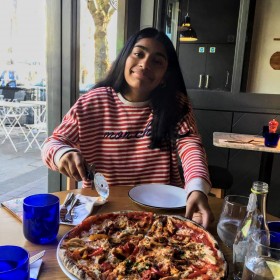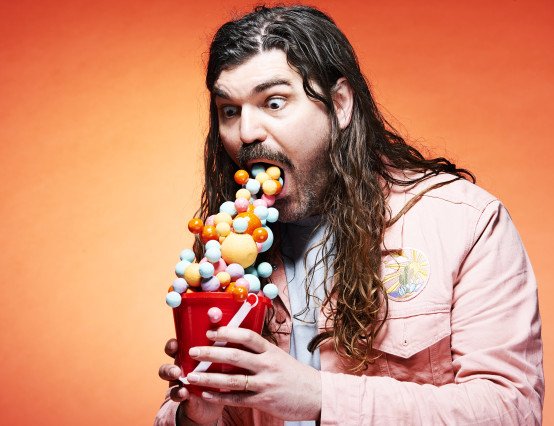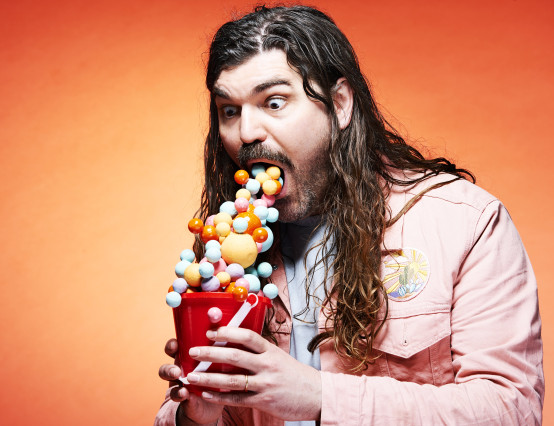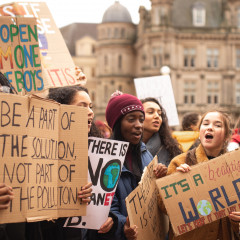This interview has been edited for length and clarity.
Could you please introduce yourself and UKSCN?
Hi, I’m Kieran, I’m fifteen and I’ve been with UKSCN for around one year now. UKSCN stands for the UK Student Climate Network and it is a group of students from all over England who collaborate with the Irish and Scottish Climate Associations.
Currently, we have four demands as an organisation. The first demand is ‘Save our future’, asking the government to declare a climate emergency and implement a green new deal, which has been partially completed — we’re yet to see a Green New Deal. The second demand is ‘Teach the future’; this demand encourages the government to implement more climate crisis education, along with much more social justice education into the syllabus. The third demand is ‘Tell the future’ which asks the government to communicate the severity of the ecological crisis. This means properly communicating the facts and not trying to say that we have more time, when we don’t have enough time to solve the climate crisis already. Lastly, we have ‘Empower the future’ and this demand includes teaching people about what they can do to become more sustainable, because whilst UKSCN priorities system change, we also condone people making individual changes. This demand includes the government trying to get people more engaged and involved with the democratic system.
Which of the four demands do you feel most closely connected to?
Currently, UKSCN is campaigning for climate justice, which emcompasses both social justice and equality and solving the ecological crisis. So, for me, the important demand is ‘Save the future’ because this includes implementing a Green New Deal, which focuses heavily on social justice as well as solving the climate crisis. A Green New Deal, rather than just stopping fossil fuels for example, means preventing people losing their jobs and instead retraining people and putting them back into sectors where they can flourish. Most importantly, it has equality as one of its core principles.
What do you do as part of UKSCN?
UKSCN works really closely with Youth Strike for Climate UK and Fridays for Future International. The Youth Strike for Climate Network UK is what we work on most of the time when we’re not in quarantine, and this includes holding events like political hustings before elections. Most importantly, this includes holding the youth strikes. Normally, we have one youth strike a month or, if we don’t have the capacity, we hold one every two months and that is where we put most of our resources. I’m involved with a few different campaigns such as ‘Teach the future’ which is hosted by UKSCN and is striving for educational reform.
How did you get into climate activism?
In school, in a few geography lessons I had heard about global warming but I’d never fully understood what that meant. One of my close friends told me that they were going to one of the first climate marches, taking place in London. And I looked at them and went, ‘What climate march? What are you marching for?’. They stood there for about ten minutes explaining to me all of the problems that the government had been neglecting and after that I was just so angry that I hadn’t been taught about all of the problems we were going to face. Even though the government knew about the problems, they refused to accept and address them, and that’s what really got me involved in the movement.
What’s been a highlight of your journey through climate activism and what’s been the most challenging obstacle you’ve faced?
One of my highlights would be a local strike that we did alongside the big strikes in London. The strike we did last September, although it was still small, had the biggest turnout we’ve ever had and we put a lot of effort into it. After that strike, we started to be recognised by our council, they began to have talks with us and now, we’re working on an initiative with them. That was really great to see; we’re actually making steps forward, even if the steps are small.
One of the worst times for me would probably be being at the strikes in London and seeing how unwilling the government were to accept the fact that this is a real problem. We were students, peacefully protesting and there were police vans, riot vans and students being dragged across the streets. To think that we were just students trying to exercise our rights to peacefully protest and they were being as brutal and ruthless as that, that’s probably one of the worst moments for me.
Subscribe to the Voice Magazine Podcast to hear other great interviews with creatives, activists and more!
UKSCN can be found on Instagram @ukscn and twitter @UKSCN1.








0 Comments